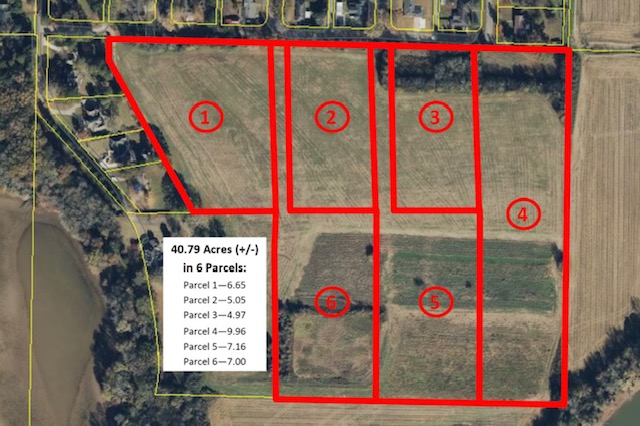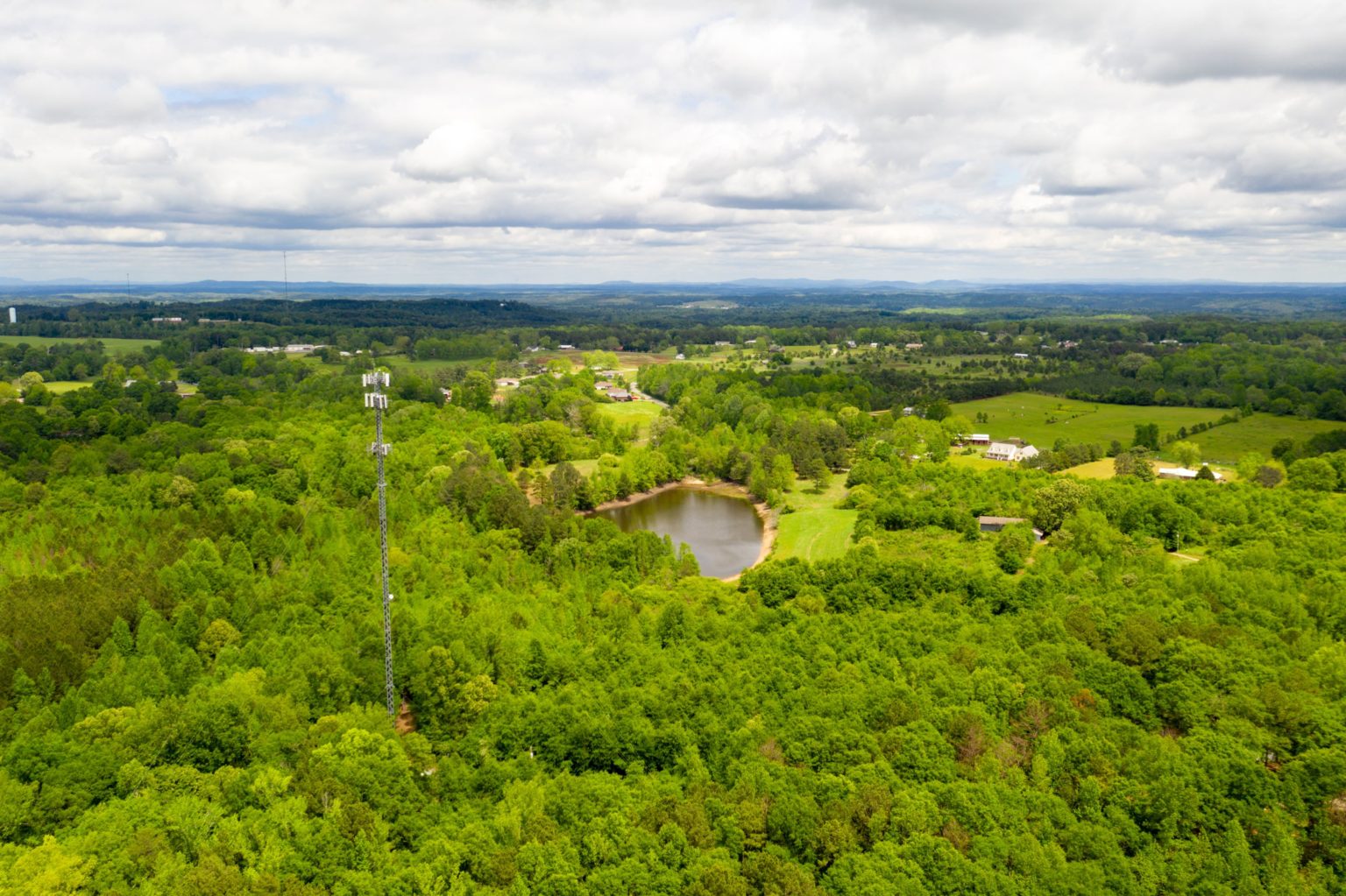Selling a piece of land can be as simple as placing a sign at the property’s edge. But what if the property is in a remote location or another state? Or what if you inherited the land and need cash more than the property itself? In these situations, an auction might be your best option.
Auctioning land involves a well-organized process designed to maximize the property’s value, resulting in a fair and transparent transaction. An efficient auction requires careful preparation before offering the land for sale. This preparation typically includes establishing precise terms, conditions, and marketing strategies to achieve an effective bidding process.
Preparation includes obtaining accurate appraisals and securing legal clearances for zoning and other concerns. Effective marketing targets potential buyers through various channels and provides clear terms outlining the bidding process, payment requirements, and closing details. Maintaining an orderly and transparent process on auction day ensures bidder confidence and a successful sale.
Choosing the right auctioneer and timing your auction during peak market conditions are also crucial for ensuring a smooth sale that meets your target price. I recently spoke with Auctioneer Jack Granger of Granger, Thagard & Associates in Birmingham, Alabama. He highlighted the benefits of auctions over traditional real estate sales.
The Importance of Marketing in Land Auctions
The quantity and quality of marketing when you want to auction land is crucial for attracting the right buyers in sufficient numbers to maximize the property’s sale price. An effective marketing strategy increases an auction’s visibility and generates local, regional, and sometimes national interest, creating competition among potential buyers. Sellers can ensure that more qualified bidders participate by reaching a broad and targeted audience through online listings, social media, newsprint, magazines, and direct outreach.
Additionally, effective marketing communicates the land’s value, unique features, and potential uses, helping buyers make informed decisions. This increased visibility creates interest and competition, often leading to higher bids and ultimately a more substantial final sale price.
Marketing land auctions effectively requires a blend of traditional and digital advertising strategies to reach a broad audience and attract serious buyers. Some of the best methods include:
- Compelling Property Listings: These should be detailed and visually appealing, with high-quality photos and videos highlighting the land’s key features and potential uses.
- Online Auction Platforms: These increase visibility and accessibility for potential buyers.
- Targeted Digital Advertising: Ads placed on search engines, social media, and real estate websites can reach a demographic interested in land investments.
- Email Marketing Campaigns: Engaging emails inform potential buyers about the auction details and updates.
- Collaboration with Real Estate Agents: Agents can network with potential buyers and help promote the auction.
- Open Houses and Property Tours: These allow potential buyers to visit the property and ask questions.
- Search Engine Optimization (SEO): Enhancing your sales’ online visibility ensures your auction listings appear prominently in relevant search results, driving more targeted traffic and increasing engagement.
- Professional Photography and Videography: These showcase the property in the best light.
Combining these strategies can help you maximize the visibility and appeal when you are trying to auction land, attracting more qualified buyers and potentially higher bids.
Finding the Right Auctioneer
One of the most important factors is the auctioneer’s experience and specialization. Look for someone with a proven track record in selling land similar to yours. An auctioneer with expertise in your specific market will understand the nuances of pricing, marketing, and potential buyer interest, which can significantly impact the success of a sale.
Research potential auctioneers before making a decision. Ask for recommendations from local real estate professionals or other landowners who have recently sold property at auction. Online directories, such as those provided by the National Auctioneers Association, can also be valuable resources for finding qualified auctioneers in your area. Check their credentials, including licensing and certifications, to ensure they are legally authorized and reputable.

Consider using professional services that include aerial photography options.
When you’ve narrowed down your options, take the time to interview the auctioneer to understand their approach and strategy for selling your land. Ask about their marketing plans and ensure they include online advertising, social media, and direct outreach to attract a broad audience. Additionally, discuss their fee structure upfront to avoid any surprises later on. A good auctioneer should be transparent about costs, including commissions and any additional fees associated with the sale.
Finally, attending auctions conducted by the top candidates can provide valuable insight into their style and effectiveness. Observing how they interact with bidders and manage the auction process will help you assess whether they fit your needs. By carefully evaluating these factors, you can choose an auctioneer who is well-equipped to maximize the value of your land sale.
Problems that Occur with Land Auctions
Auctioning can be an effective way to sell your property, but several potential problems can sometimes arise. Understanding these issues can help you prepare and mitigate risks. Here are some common problems that might occur:
- Low Attendance: Low attendance can lead to fewer bids and lower prices than expected. This issue is often caused by inadequate marketing, poor timing, or lack of interest in the property. A well-designed marketing strategy that selects an optimal date and time and engages with a broad audience through multiple channels can help avoid low turnout.
- Unrealistic Reserve Price: Setting an unrealistic reserve price may result in offers that do not meet this minimum bid. Base your reserve price on current market conditions by getting an independent appraisal from a real estate professional to set a fair market value. If current land sales are depressed, consider waiting until your local market stabilizes to attract more bidders.
- Legal Issues: Conduct thorough due diligence before the auction, ensuring a clear title and addressing any disclosures to avoid legal challenges related to the land’s title, zoning, or environmental regulations. If co-owners or heirs are involved, ensure clear agreements are in place before proceeding with the auction.
- Financing Issues: Financing issues can occur when bidders haven’t been pre-qualified before an auction. If possible, offer financing options by working with a lender specializing in land loans. This issue often arises when dealing with undeveloped or rural properties. Consider timing auctions during stable economic periods and possibly delaying your sale during market fluctuations, which can affect buyer confidence.
- Technical Issues in Online Auctions: Online auctions can sometimes develop technical issues that disrupt bidding, leading to lost opportunities or disputes. Choose a reliable auction platform, test all systems beforehand, and have technical support available during the auction.
- Unforeseen Environmental or Structural Issues: These issues post-auction can lead to legal complications or buyer withdrawal. Conduct a thorough environmental assessment and structural inspections before the sale, fully disclose any problems, and include possible remedies.
- Poorly Conducted Auctions: A poorly conducted auction can harm the seller’s reputation, making future sales more difficult. Choose experienced auctioneers to ensure transparent communication and maintain high standards of professionalism throughout the process.
What Landowners Can Do to Maximize Returns from a Land Auction
Landowners should ensure the property is in its best possible condition when they are trying to auction land, addressing any issues that might deter potential buyers. Securing a professional appraisal and ensuring legal clearance is essential for setting a realistic reserve price and avoiding complications during the sale.
Setting clear, transparent auction terms and conditions helps build trust and confidence among bidders. A well-organized and efficient event on the day of the auction ensures a smooth process, encouraging competitive bidding.

Subdividing larger properties often creates broader interest and increased bidding.
Granger often recommends dividing sizable properties into smaller parcels to create competition and better pricing. He stressed that “Pricing does not create demand when you are trying to auction land; it is demand that creates pricing,” which is better achieved by the bidding process rather than fixed pricing. For example, dividing 100 or 1,000 acres into multiple smaller tracts allows buyers more options and often attracts broader interest.
Final Thoughts
Selling real estate at auction is fast becoming the go-to option for sellers looking for a timely sale at the best fair market value that is equitable for everyone involved. Granger noted that more buyers are seeking out auctions because they know they’ll be competing fairly and on the same terms as all other buyers.
A robust marketing campaign that reaches a broad and targeted audience is essential to generating interest and competition among potential buyers. Clear auction terms and a well-organized event foster bidder confidence and transparency, often driving up the final sale price. By following these steps and engaging experienced professionals, landowners can maximize their returns and achieve a successful auction.


